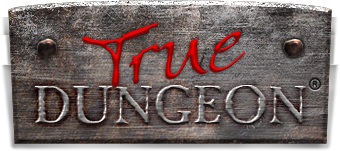Sorry for the late response. I'm not really active on the forum, but my spouse is and he pointed me to your post!
I'm a data scientist in the e-commerce/marketing space (not Amazon), and I came from an academic background which is where I learned stats and R. I managed to get in the field without Python, but most of my work is more stats-focused so R in honestly the better tool for me.
I've been involved in a few hires for data science internships/entry-level data analyst positions. For these we've had luck with graduates from data science bootcamps, specifically Metis and the Flatiron School since we're NYC-based. So, I'd say those are two that I'd consider to be reasonably reputable. That said, to be honest, I don't think I'd hire a full-blown data scientist directly from a bootcamp unless they either had some appreciable experience beforehand or afterward, like a background in computer science, a PhD in a statistically-rigorous discipline, or industry experience in analytics. The field is still kind of a wild west right now so your mileage may vary, but I wouldn't expect to come out of a bootcamp making six figures.
In my somewhat limited experience, the industry is currently pretty glutted with entry-level applicants which makes it tricky (but not impossible) to stand out. If I were starting out from scratch in analytics/data science, these are the things I'd consider the be the bare minimum qualifications to get your resume looked at for an entry-level role, and beyond are the things that make someone stand out.
Bare minimum:
- Proficiency with SQL.
- Proficiency with R or Python (some places are Python-only).
- Projects and/or previous experience that are described coherently/succinctly on resume (these can be things that you do in the context of a bootcamp).
Stands out:
- A thoughtful GitHub repo with polished projects that have a clear motivation/takeaway.
- Actual real-world experience (prior internships, academic experience, etc.).
- Experience with business intelligence software like Tableau, Looker, or PowerBI.
- Experience with other tools specific to the role. For my company that might be Google Analytics or dbt (data build tool), others have mentioned how VBA/SAS/Salesforce are useful in their companies.
- Excellent communication skills, as demonstrated via resume/cover letter/project descriptions.
Beyond that, it's kind of hard to give super specific advice without knowledge of your background, but I think that finding a niche to occupy can be a good strategy, whether you pursue that alongside or independent of data science education. Another emerging field it might be worthwhile to look into is analytics engineering, which the creators of dbt write about here:
blog.getdbt.com/what-is-an-analytics-engineer/
. It's a lot less sexy than data science, but there aren't as many folks clamoring to make the really immaculate data sets that underlies all really great analytics work.
Overall I think data science skills are still very much in-demand but a bootcamp alone may or may not be sufficient to get your foot in the door depending on your background/prior experience.





